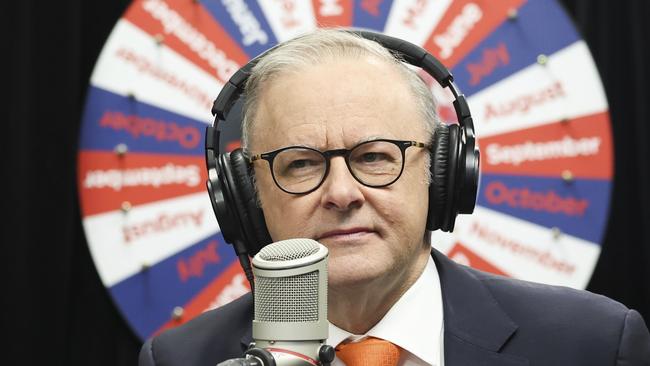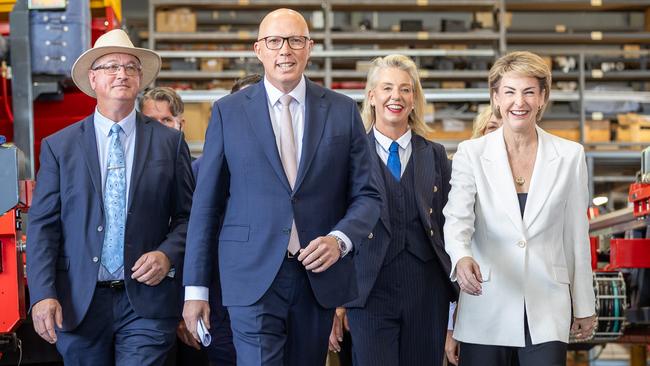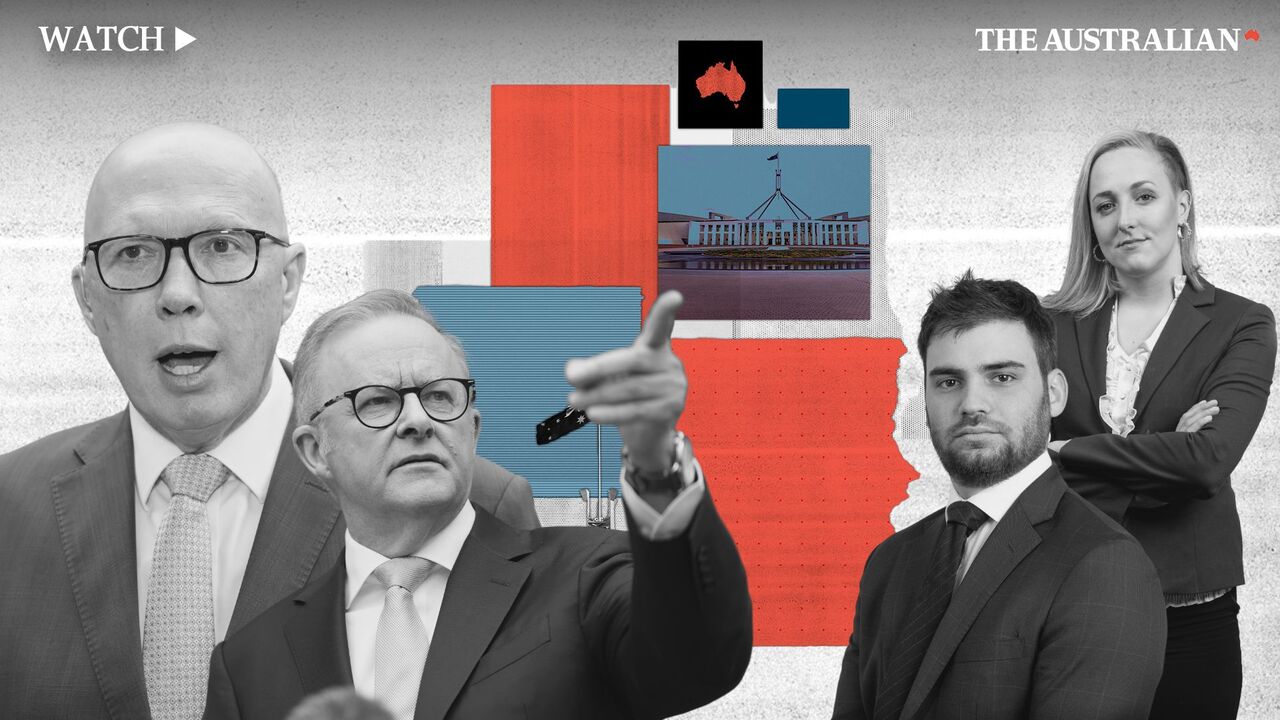Election 2025: Dutton thought this would just be a referendum on Albanese. He was wrong.
It is Peter Dutton who appears hesitant and reactive. The Prime Minister projects confidence and Labor seemed to head into the campaign with at least an element of a message.

Peter Dutton may have made a strategic error in assuming this election could be solely defined as a referendum on the performance of a bad Labor government.
As the first week of the campaign expires, the premise that the Coalition didn’t need to do much as it watched the Albanese government fall over is now under challenge.
Few voters could disagree with the assessment that Anthony Albanese has failed to live up to expectations. Many will be significantly more hostile. But a full prosecution of this case required a dynamic to exist that appears not to have yet materialised outside Victoria. Baseball bat-level anger.
The Labor campaign team will be pleased with Albanese’s performance so far, and where the contest now rests. There was mid-level anxiety about how Albanese would present. But it is Dutton who appears hesitant and reactive. The Prime Minister projects confidence.
Labor seemed to head into the campaign with at least an element of a message and a tactical campaign built around it. Albanese is carrying that message effectively. Dutton’s problem appears to be the lack of a message – a product of having delayed its policy offerings.
But the significance of this shouldn’t be overstated.
Labor’s policy agenda is questionable when a sharp economic lens is applied. And the politics is still to be won. It is only one week down in a five-week campaign. Dutton is promising a bigger agenda will be revealed. And there is confidence that the fuel tax cut pledge has gone down well among those the Coalition is targeting.
The concern within the Coalition must be that its working premise – built around tapping into cost-of-living grievance over the course of the political cycle – doesn’t seem to have the same force as it perhaps should have. This has left the positive side of the Coalition’s agenda looking thin.

There is no question that the general electoral assessment of Albanese as Prime Minister is unflattering. People view him as tiresome and uninspiring. There is a deep sense of disappointment in not only his leadership but the performance of Labor in government.
The question is whether enough voters believe that he is as weak and hopeless as Dutton tries to portray. And the mood for change that Dutton appeared to have begun to engineer at the end of last year shows signs of softening. Disillusionment among many voters is balanced against a reluctant acceptance by others that at least Albanese appears to be trying. This would have been evident to Liberal strategists for some months.
The polls have failed to detect any significant swing against Labor since February, with the momentum starting to shift the other way.
Dutton continues to present himself as the hardman, a strong leader for the times to keep the country safe and make the hard economic calls. This is the prism through which Dutton has sought to argue the politics of Donald Trump’s madness.
Beneath the surface of the campaign theatrics, there is one undercurrent that has emerged in the first week of the campaign that poses a significant risk for Dutton in the seats the Coalition is targeting. The work-from-home policy has become a significant problem. While this was limited to public servants, the Coalition has failed to arrest a growing community perception that may end up being broader than just bureaucrats. This is not only being reported from focus-group work conducted by Labor, but Liberal and Nationals candidates in the field. This is less about the false imagery of Dutton importing Trump policy to an Australian context than it is about lived reality of those who appear most aggrieved.

The Coalition believed there was political appeal for tradies and retail workers for instance, who don’t have the luxury of choice on where they work. This may be valid. But in the process they appear to have overlooked another key target group – mothers in the outer suburbs and the regions. And these are voters the Coalition should be concerned about.
The fact many can work from home a few days a week can often be the thing that holds the show together. Forcing workers back into the office raises a problematic question for Dutton. Is the Coalition is pro-family?
It also goes to the heart of the broader contest on cost of living. This contest could break either way. The risk for the Coalition is that it could break in favour of the “mummy” party rather than the “daddy” party.
Most Australians get that things are bad. Opposition Treasury spokesman Angus Taylor has rightly tried to frame the debate around the unprecedented fall in living standards. The question is whether enough voters comes to see Labor as the party that will look after them.
For Dutton, enough voters need to have made the transition to understanding that Labor’s uncontrolled spending is making things worse. This is unresolved. To the extent that Dutton has targeted the family budget with his fuel tax policy. But he will have to put more grunt into what the Opposition is proposing.

While it was necessary and legitimate for the Coalition to exploit grievance, will it be enough? There is a view among some Liberals that Dutton has been overweight on the energy debate and underweight on core economics such as tax reform and fiscal policy. And this has left Dutton without a detailed and hence forceful message as to what the alternative offer is.
Albanese appears to have succeeded in the first week of the campaign to milk a momentum that appeared to be drifting away from the Coalition and back toward the government. The cataclysm of Trump appears to have done little to disrupt that.
The Coalition has failed to draw the conclusions from this – and the want so far of a tidal wave of anger against the government – and to make the necessary adjustment to its pitch and its overall strategy.
With a month to go, the election is there to be won. The vote, as strategists like to say, is soft. This suggests a significant swing against the government is there to exploit for Dutton if he is able. And if expectations tip toward Labor getting back into office, the dynamic effects can turn against it.
There is a reason parties prefer going into a campaign as the underdog. And at this stage, it is Dutton who holds this status.




